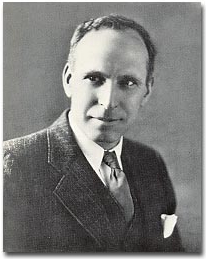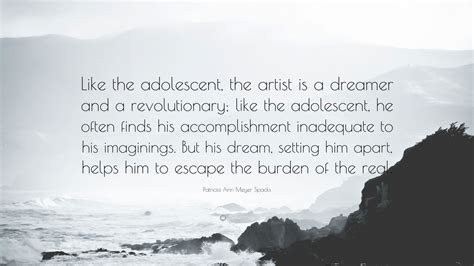A Quote by Roger Nash Baldwin
I cannot consistently, with self respect, do other than I have, namely, to deliberately violate an act which seems to me to be a denial of everything which ideally and in practice I hold sacred.
Quote Topics
Related Quotes
The very act of faith by which we receive Christ is an act of the utter renunciation of self, and all its works, as a ground of salvation. It is really a denial of self, and a grounding of its arms in the last citadel into which it can be driven, and is, in its principle, inclusive of every subsequent act of self-denial by which sin is forsaken or overcome.
Horsemanship is the one art for which it seems one needs only practice. However, practice without true principles is nothing other than routine, the fruit of which is a strained and unsure execution, a false diamond which dazzles semi-connoisseurs often more impressed by the accomplishments of the horse than the merit of the horseman.
The question "Is this an act of self-love or is it an act of self-sabotage?" is
one you must consistently ask yourself if you are committed to having all
that you want and all that you deserve. When you love yourself you feel
worthy and deserving of claiming the gifts of this world. Self-love gives you
peace of mind and balance. Self-love gives you self-respect and the ability
to respect others. It gives you the confidence to stand up and ask for what
you want. Self-love is the main ingredient in a successful, fulfilled life.
One of the most powerful concepts, one which is a sure cure for lack of confidence, is the thought that God is with you and helping you. This is one of the simplest teachings in religion, namely, that Almighty God will be your companion, will stand by you, help you, and see you through. No other idea is so powerful in developing self-confidence as this simple belief when practiced. To practice it simply affirm "God is with me; God is helping me; God is guiding me." Spend several minutes each day visualizing his presence. Then practice believing that affirmation.
Remember that [scientific thought] is the guide of action; that the truth which it arrives at is not that which we can ideally contemplate without error, but that which we may act upon without fear; and you cannot fail to see that scientific thought is not an accompaniment or condition of human progress, but human progress itself.
There are several kinds of love. One is a selfish, mean, grasping, egotistical thing which uses love for self-importance. This is the ugly and crippling kind. The other is an outpouring of everything good in you — of kindness and consideration and respect — not only the social respect of manners but the greater respect which is recognition of another person as unique and valuable. The first kind can make you sick and small and weak but the second can release in you strength, and courage and goodness and even wisdom you didn’t know you had.
People with self-respect exhibit a certain toughness, a kind of moral nerve; they display what was once called *character,* a quality which, although approved in the abstract, sometimes loses ground to the other, more instantly negotiable virtues.... character--the willingness to accept responsibility for one's own life--is the source from which self-respect springs.
Re-vision – the act of looking back, of seeing with fresh eyes, of entering an old text from a new critical direction – is for woman more than a chapter in cultural history: it is an act of survival. Until we understand the assumptions in which we are drenched we cannot know ourselves. And this drive to self-knowledge, for women, is more than a search for identity: it is part of our refusal of the self-destructiveness of male-dominated society.
I have discovered a universal rule which seems to apply more than any other in all human actions or words: namely, to steer away from affectation at all costs, as if it were a rough and dangerous reef, and (to use perhaps a novel word for it) to practise in all things a certain nonchalance [sprezzatura] which conceals all artistry and makes whatever one says or does seem uncontrived and effortless.
Time, which measures everything in our idea, and is often deficient to our schemes, is to nature endless and as nothing; it cannot limit that by which alone it had existence; and as the natural course of time, which to us seems infinite, cannot be bounded by any operation that may have an end, the progress of things upon this globe, that is, the course of nature, cannot be limited by time, which must proceed in a continual succession.
How can they be delivered from the life of self, who are not willing to abandon all their possessions? How can they believe themselves despoiled of all, who possess the greatest treasure under heaven? Do not oblige me to name it, but judge, if you are enlightened; there is one of them which is less than the other, which is lost before it, but which those who must lose everything have the greatest trouble in parting with.






































